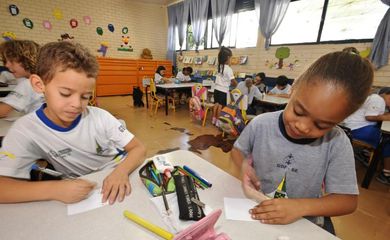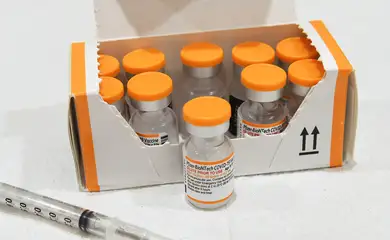COVID-19: Over 80% of parents plan to vaccinate kids

A study by the Oswaldo Cruz Foundation (Fiocruz), which heard 15,297 parents and guardians of children and adolescents, found that more than 80 percent intend to vaccinate their kids against COVID-19. The research is dubbed VacinaKids and investigates vaccine hesitancy. An online questionnaire was answered by 70 percent of parents from the Southeast, 11.13 percent from the South, 8.27 percent from the Northeast, 7.6 percent from the Central West, and 2.4 percent from the North.

According to the responses, hesitancy is higher among parents of children up to four years old—even though this age group is not currently covered by vaccination. Among these parents, the percentage not planning to vaccinate stood at 16.4 percent. Vaccine hesitancy was lower among parents of kids aged five through 11 (12.8%), and reached 14.9 percent among parents and guardians of teenagers.
The main reasons behind vaccine hesitancy were fear of adverse effects and alleged long-term effects, a downplaying of the seriousness of the pandemic, and the misconception that those who have had COVID-19 do not need to vaccinate. Also stated a large number of times by respondents was that they disagree that the shot would make going back to school safer. Natural immunity, many also claimed, is better protection than the inoculation.
Other beliefs listed posit that the vaccine needs more time to be considered safe, and that children and adolescents cannot develop severe COVID-19. Some answers showed preference for natural products over vaccination.
Fiocruz reports that vaccination of children aged five through 11 with Pfizer is safe and efficient and has been authorized by Brazil’s national drug regulator Anvisa as well as other sanitary authorities across the world, like that of the US, where 8.7 million doses have been administered in this age group.
Study coordinator, pediatrician, and clinical researcher at Fiocruz’s Fernandes Figueira Institute Dr. Daniella Moore mentions data from the US Centers for Disease Control and Prevention (CDC) showing that child vaccination is safe and transpires in the country with approximately 4 thousand adverse effects reported—of which 97 percent are light—among over 8 million doses administered.
On myocarditis (inflammation of the heart muscle)—one of the most common fears named by parents hesitant to vaccinate their children—Dr. Moore notes that COVID-19 can also cause this inflammation, especially when the disease develops into the multisystem inflammatory syndrome.
Last year, nearly 20 thousand children and adolescents were hospitalized with severe acute respiratory syndrome linked to COVID-19. As per Fiocruz data, 1,422 children and adolescents had died from COVID-19 by December 4 last year—418 infants up to one year old, 208 one through five, 996 six through 19.



